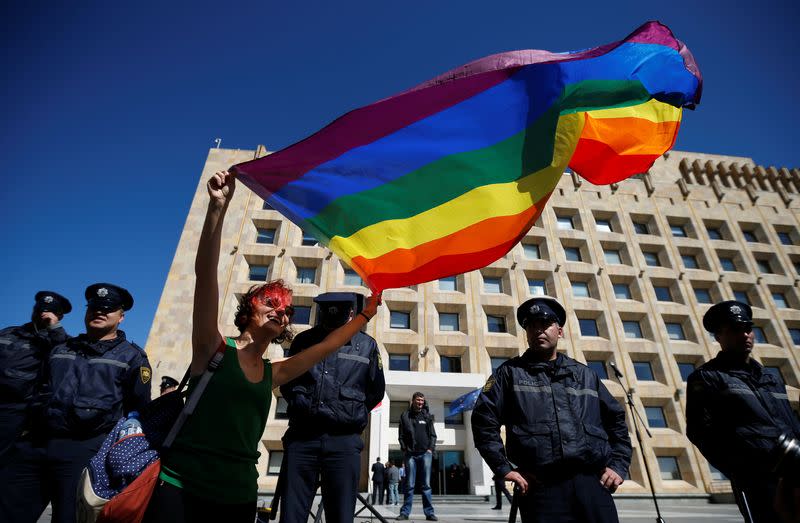Georgia to move ahead soon with bill curbing LGBT rights

TBILISI (Reuters) - Georgia's parliament will shortly begin debating a wide-ranging "family values" bill that will include bans on "LGBT propaganda" and gender reassignment surgery, the speaker of parliament was quoted as saying on Tuesday.
The first of three required readings of the bill would take place in the current spring session of parliament, the Interpress news service quoted the speaker, Shalva Papuashvili, as saying.
The ruling Georgian Dream party announced the bill in March, drawing condemnation from LGBT activists and human rights groups.
The debate on it will take place at a moment of high political tension in the South Caucasus country after weeks of huge protests against a bill on "foreign agents" that was finally signed into law this week.
The proposed measures are likely to fuel European Union and U.S. concerns about Georgia's political direction, following their criticism of the foreign agent law that critics see as Russian-inspired and repressive.
Interpress quoted Papuashvili as saying the bill would also ban non-heterosexual people from adopting children and prevent people from changing their gender in ID documents. Public gatherings promoting same-sex relationships would not be allowed.
The bill would ban "LGBT propaganda" in the education system and stop broadcasters from showing intimate scenes involving same-sex relationships.
A predominantly Orthodox Christian nation, Georgia is socially conservative, with polls showing a large majority of the population disapprove of same-sex relationships.
The opposition has said that Georgian Dream's anti-LGBT agenda is an attempt to shore up its support among conservatives and distract voters from economic problems ahead of parliamentary elections due by October.
The ruling party says the bill is necessary to defend against "pseudo-liberal" values that undermine traditional family relationships.
(Reporting by Reuters, writing by Mark Trevelyan; Editing by Sriraj Kalluvila)


